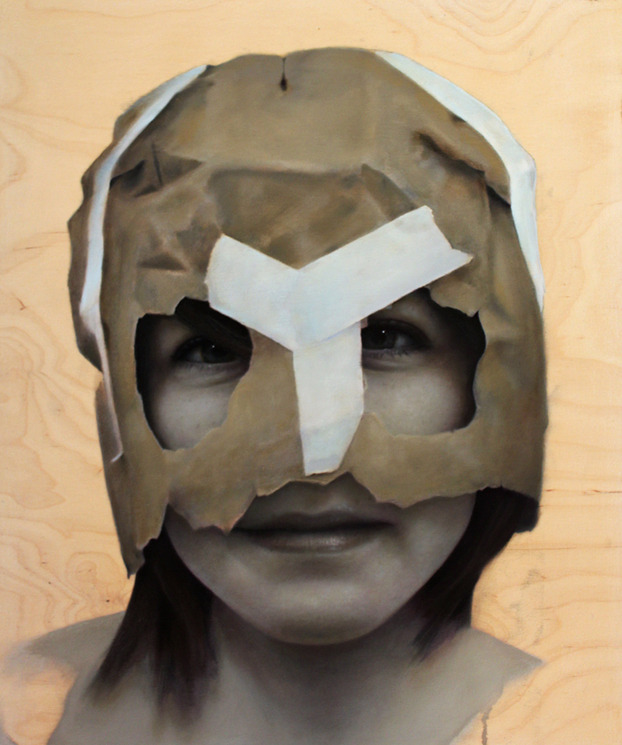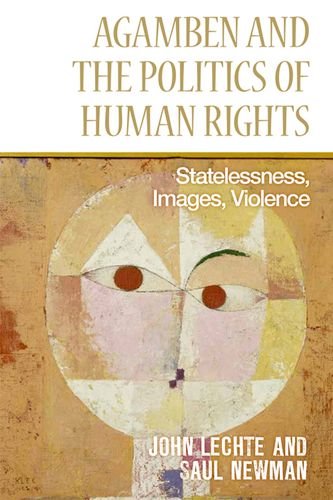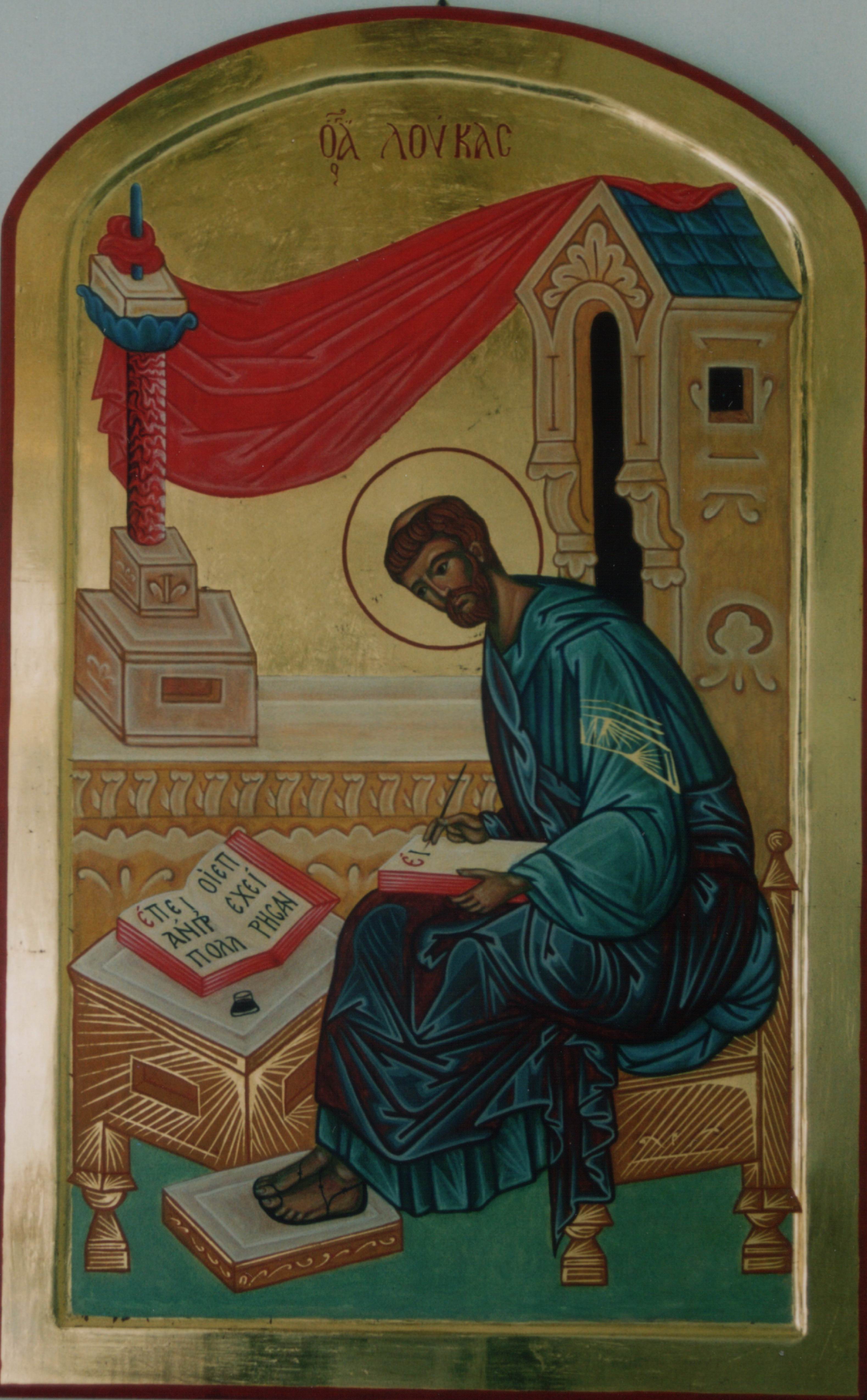Adam Kotsko and Colby Dickinson: On Agamben -
September 2013
1. What is the peculiarity of the link between philosophy and theology in the work of Agamben?
Colby: In many ways, I want to answer this question simply by saying that, according to Agamben’s reading of these disciplines, in the end, there is little difference between them, except to say that theology—historically speaking—got things wrong early on, and only now has an opportunity to embrace its ‘mission’ once again. When he speaks of Saint Paul’s understanding of ‘the messianic’ and its ability to upend any of our representations through a ‘division of division itself’ (in The Time that Remains), he is signaling the ‘theological’ core of our most basic philosophical endeavors. This is why I feel that Agamben’s most philosophical work will always have its theological counterpart, just as his writings on theology will always have major philosophical conclusions.
Adam: I agree that Agamben sees the two disciplines as necessarily connected or mutually communicating. He recognizes a distinction, but they seem to be two ways of going about a fundamentally similar task. And I think that part of what leads him to see such a necessary connection is his absolute rejection of modern attempts to establish “religion” as a separate, self-contained realm—opening up a path for a new and different way of conceiving the relationship between theology and philosophy outside the paradigm of religious/secular.
Colby: And this is why his notion of ‘profanation’ is so intriguing to me, though perhaps very baffling to others. There is a sense, I think, in which ‘profaning’ that which appears to us as ‘sacred’ is a blasphemous act, but it is one that seems so central to the Christian tradition, as this is something Jesus himself would have been familiar with. His many acts of ‘blasphemy’ might actually be reread as so many acts of profanation, in Agamben’s use of the term. This is a point I think we are just beginning to glimpse some of the significance of as well.
Adam: Definitely. That was a really intriguing aspect of The Sacrament of Language for me—one of the few times he actually commented on Jesus’s own practice. Surely that is a relevant source for thinking about the “messianic”!
2. What are the fundamental dialogues that this thinker establishes between these two fields of knowledge?
Colby: What seems unique in his work is that Agamben offers theology a genuine chance to glimpse its own inner workings in terms of its political movements, specifically as they have been deployed over time. In The Kingdom and the Glory, for example, he points out time and again how Christian talk of the trinity is mired in a very this-worldly economy, complete with communal and even financial implications. He does the same thing as well in his comments on the ‘glorious body’, the post-Resurrected body that is really another way of talking about our very earthly bodies (in his Nudities). For quite some time now many theologians have been trying to talk about how each theology really speaks a good deal about one’s personal context (e.g. feminist, black, latino/a theologies, etc.). What Agamben seems to say to such efforts is that they are right to recognize the importance of looking at one’s own ground from which one speaks, but also that such talk does not go far enough either. The entire project of theology must be rethought from the ground up, and philosophy—or the ‘philosophy of theology’ perhaps—plays a central role in redefining the theological tasks before us today.
Adam: It seems to me that the “point of contact” is actually the notion of the messianic, which in some works (like The Sacrament of Language) can seem to be synonymous with the philosophical, so that Agamben can detect messianic patterns of thought in Aristotle, for example, and implicitly claim St. Paul as part of the philosophical tradition. It will be interesting to see what happens to the distinction between philosophy and theology in his work subsequent to Opus Dei, where he postulates two ontologies, one of being and one of command, which may correspond to (or serve as the object of) philosophy and theology, respectively.
Colby: One of the things I appreciated the most about Opus Dei in fact was his movement back toward the ethical-philosophical by way of critique toward Kant’s sense of ‘duty’—something linked very much in many people’s minds to an internal sense of commanding oneself, if I can put it that way. There is much yet to be rethought within the western, Christian tradition with regards to duty, obligation and responsibility, just to name a few central concepts, and I think Agamben is here pointing a way toward such a reformulation of these things, and in very profound ways.
Adam: The way he talks about the Kantian categorical imperative resonates a great deal with the psychoanalytic account of its relationship to the superego—with all the cruelty and sadism implied there. He acknowledges that connection by writing a long note on Lacan’s “Kant avec Sade,” and while it’s clear that he wants to take some distance from the psychoanalytic interpretation, it’s less clear what his own position is. This is an area where I think Eric Santner’s work is really valuable for understanding Agamben, because he is continually supplementing Agamben’s concepts with psychoanalytic ones—and in retrospect, Agamben’s own account can sometimes seem incomplete. It’s as though he needs that psychoanalytic supplement and yet doesn’t want to deal with it.
3. For Agamben, the signature of the sacred was transferred from religion to the space of politics. What are the consequences of this shift of perspective in terms of philosophy and theology?
Colby: In short, the consequence of such a transfer is that politics today functions as a thinly-veiled religious spectacle, complete with its calls for glory to permeate its every gesture. One can notice, for starters, how sacred certain national political spaces and persons have become ‘sacred’ over time. In a deeply ironic fashion, then, Agamben tries in a certain sense to preserve theology’s (‘original’, or perhaps simply Pauline) ability to critique the political sphere and its dependence upon the violent reductions made with regards to its given, normative representations. Though he is highly critical of theology’s legacy, historically speaking, there is something as well in the Christian tradition specifically—from Paul’s writings to Saint Francis of Assisi’s attempt to embody a ‘form of life’ beyond the law, as we saw in his more recent The Highest Poverty—that is able to formulate a substantial critique of the political sphere’s use of the ‘sacred’. At the same time, such a rendering of things allows him to also dismiss any sense of ‘sacrality’ as a political ploy for sovereign power. Such insights motivate his quest toward an ‘absolute profanation’ of our world as the only way to be authentically ‘religious’, and, in the end, I suspect such a profanation shares something fundamental with Jesus’ own attempts to divest people of their false ‘sacred’ idols.
Adam: What’s most interesting to me from the perspective of the theory of religion is that Agamben believes that this shift of sacredness from religion to politics is only possible because the very notion of the sacred points to a time “before” religion and politics were separated in the first place. One might think that a notion like “the sacredness of human life” is more of a metaphor drawn from the religious sphere, which is meant to emphasize the extreme importance of human life—but if the religious and the political are always connected because they share the same root in human experience, then a metaphor can never be only a metaphor.
Colby: I sense here the potential for a vast deconstruction of much political rhetoric today, something which, in the United States at least, seems to all-too-happily wed the political with the religious, and this under the false pretenses of a predetermined sense of what exactly the ‘sacred’ is. I think a lot of people outside the US are generally surprised when they see how people here wed the political with the religious, but, if anything, Agamben seems to illustrate quite adeptly why certain political-religious groups in the US hold such influence.
Adam: This is certainly an area where he is very Benjaminian. I’m thinking of the part in “On the Concept of History” where he castigates progressive liberals for their shock that such things are “still” possible—and the same could be said about progressive liberals in the U.S. who are constantly waiting for religion to die off so that our history can finally take the “normal” course.
4. What is it about the “poetic atheology” of Agamben that interests you? How can we understand the split between poetry and philosophy in his thinking?
Colby: Poetry, for Agamben, and mainly in its modern fragmentary form, directs our attention toward the disintegration of the ‘subject’, away from its theological ‘signature’ and toward a new form of living ‘beyond’ the confines of the traditional (metaphysical, theological, sovereign) subject. In this sense, poetry—especially in those poets who have most directly sought to open up such a space for us, as in Giorgio Caproni or Rilke, for example—becomes an ‘atheological’ exercise, and a movement toward a hope for humanity to find its liberation from such oppressive forces. Traditionally, as he understands it, theology was what filled the empty space between philosophy and poetry, two interrelated fields with different focal points: respectively, knowledge and experience. The movement between these points should, in Agamben’s estimation, be left unfilled, and open toward the riches that such a traversal might entail, though such things would often be beyond words, certainly beyond representation. Theology, however, sought to plug this empty space with its own conjectures and representational grids, all with the intent of maintaining a specific structure of (sovereign) power, something often linked to the divine right of kings to rule and the like. Agamben’s quest for a ‘poetic atheology’ is the hope he offers our contemporary world to be free of such structures and ‘divine’ claims so that humanity itself might take up the (more just) task of taking responsibility for itself, and not deadening its experiences as so many would today. In fact, Agamben’s word for this deadening of experience—the ‘museification’ of our world—says a lot about how the ‘theological’ is really to be understood. Just as with a museum which removes objects from everyday use, so too does the religious claim to remove objects from their everyday usage, conferring a certain sacrality upon them. Agamben’s efforts are rather aimed at removing the sacral aura from such objects and returning them to their use. I often think of the way in which churches today have become museums and museums function like churches and with both catering more and more to the tourist industry.
5. What approaches are possible between Agamben, Benjamin and Girard?
Colby: I think that this nexus of authors can be linked through each one’s focus upon the role of violence in relation to religion, especially as each will side, more or less, with the weak, messianic forces of history over the strong, sovereign powers that tend to rule things otherwise. This was certainly an important convergence of ideas for Benjamin, and I believe for Agamben as well. For the latter, especially in his Homo Sacer series and in his early Language and Death, there is a strong linkage made between sacrifice, violence and—what Girard would call—single victim mechanisms. Though I would be cautious to say that their work overlaps entirely—and I am mainly speaking of Agamben and Girard here—I am certainly drawn to view their respective works as forming a certain shared effort to illuminate the injustices done to the victim, the false notions of sacrality at work within such mechanisms , and the like. I think the fact that Gianni Vattimo has been able to read Girard as one whose work ultimately leads us toward a more ‘secular’ society seems only to confirm Agamben’s independent reading of things (though Agamben himself would prefer to use the term ‘profane’ rather than ‘secular’). It is interesting, at least from a passing glance, to think about how Girard’s main point—that society is essentially founded upon the exclusion (‘scapegoating’) of a ‘weak’ victim and that our most basic political structures rely upon such a logic—is that which ultimately underlines Agamben’s critique of politics as well. Much more could be done with this, and I think much is being developed along these lines by the many Girardians today.
6. What does the figure of the empty throne used by Agamben in “The Kingdom and the Glory” mean?
Adam: In The Kingdom and the Glory, Agamben’s goal is to reveal that sovereign power is fundamentally empty—and the empty throne is a powerful image for that reality (or lack of reality). He does something interesting with this image, though. It seems to be merely a way of unmasking the illegitimacy of sovereign power, but he claims that there’s something positive to be said as well. The void at the heart of sovereignty can be a source of transformation and creativity. This is because it corresponds to the fundamental inoperativity of humanity—the fact that we have no pre-given purpose or task in the world. Sovereign power masks this inoperativity by claiming to be the purpose of all human activity, and unmasking sovereign power gives us the possibility of creating new and different purposes or tasks for ourselves.
Colby: I would find it very interesting to put such a view of the ‘void’ at the heart of sovereignty in dialogue with Moltmann’s notion of ‘perichorisis’, in which the trinity itself is said to have a void at its own heart. Agamben does take up Moltmann’s notion of the trinity very briefly in this book, but he doesn’t deal directly with this connection, and I think an opportunity is lost there somewhere to explore ‘alternate’ notions of the divine, ones beyond his usual understanding of divine sovereignty.
Adam: I was disappointed with his engagement with Moltmann—it was limited to a swipe where he claims that Benjamin already did a better job of what Moltmann wants to do and to the quotation identifying the economic and immanent trinity (which actually stems originally from Karl Rahner!). Agamben does a great job of engaging with the theological tradition, but like most other philosophers, he can be dismissive of contemporary theologians.
7. How are we to understand that Christian theology, to Agamben, has been, since its origin, an economic-managerial and not a State-political one?
Colby: This question really draws attention, to my mind, to the influence of Foucault’s work upon his own over the last decade or so. Foucault’s lectures on governmentality really placed an emphasis upon the ways in which the economic-managerial paradigm has seemed to govern in place of what many have seen as the dominant political player, the sovereign state-political one. In many ways, however, Agamben seems not able to seamlessly weave this idea onto the critique of sovereign power he has been developing throughout the Homo Sacer series.
Adam: This is an aspect of Agamben’s argument in The Kingdom and the Glory that I find difficult to understand. At first, he seems to be presenting the economic paradigm as a better alternative to the political-theological paradigm of sovereignty, especially insofar as he locates it in the Pauline epistles. Yet by the end of the book, he has dismissed the economic paradigm as ultimately “hellish” and beyond redemption and turned back to the sovereign paradigm in his analysis of glory. I wish he had said more about how he understands Paul’s place in the development of economic thought.
Colby: And this reawakens in me the desire to see him deal with something like Moltmann’s notion of ‘perichorisis’, or the void at the heart of God. I think that such a notion might be the only way to bring things back, theologically at least, to a discussion of exactly what can be done with the sovereign paradigm in the end.
Biographies
Colby Dickinson is Assistant Professor of Theology at Loyola University, Chicago. He is the author of Agamben and Theology (London: T&T Clark, 2011) and Between the Canon and the Messiah: The Structure of Faith in Contemporary Continental Thought (London: Bloomsbury, 2013), as well as a number of articles on contemporary continental philosophy and theology. He is editor of The Postmodern ‘Saints’ of France (London: T&T Clark, 2013) and The Shaping of Tradition: Context and Normativity (Leuven: Peeters, 2013).
Adam Kotsko is Assistant Professor of Humanities at Shimer College in Chicago. He is the author of Žižek and Theology, Politics of Redemption: The Social Logic of Salvation, Awkwardness, and Why We Love Sociopaths: A Guide to Late Capitalist Television and the translator of several works by Giorgio Agamben. He blogs at An und für sich (itself.wordpress.com).












